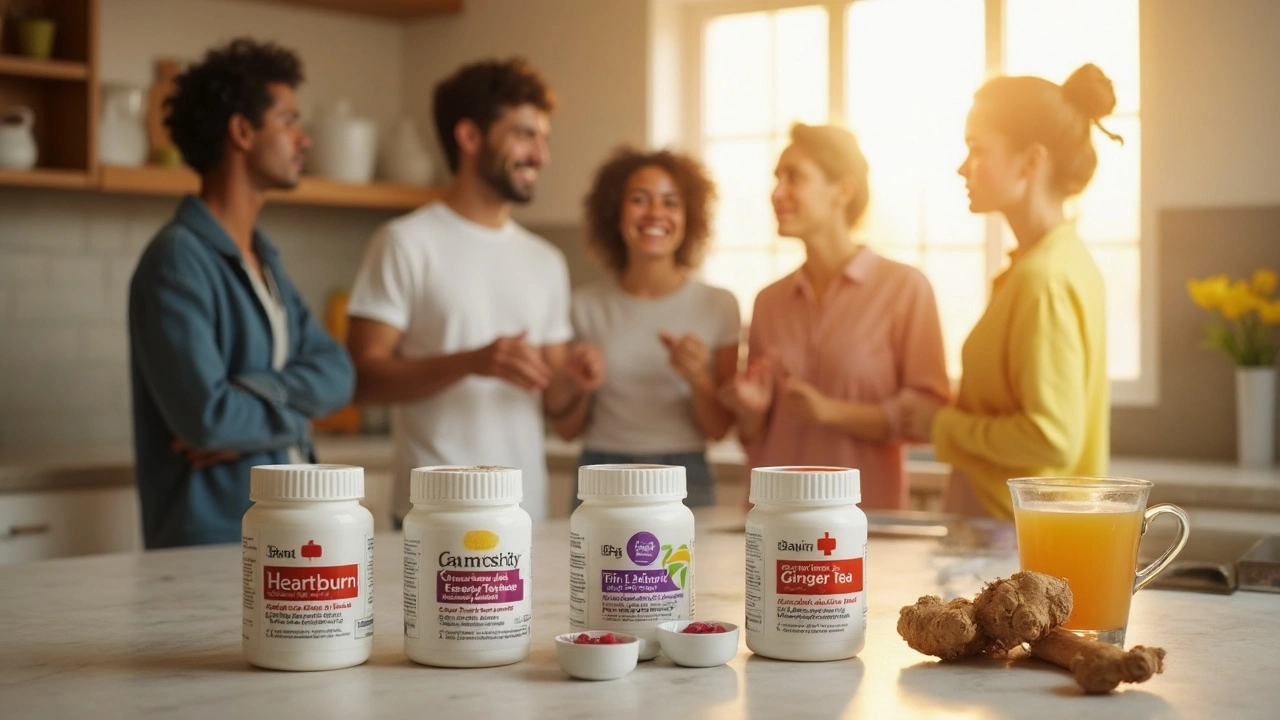Heartburn Relief: Simple Steps and 2025 Medication Options
If you’ve ever felt a burning sensation after a big meal, you know how annoying heartburn can be. The good news is that most attacks can be tamed with easy lifestyle changes and the right over‑the‑counter choices. In this guide we’ll break down what causes that burning feeling, what you can do right now, and which medicines are worth considering now that Ranitidine is off the shelves.
What Usually Triggers Heartburn?
Heartburn happens when stomach acid splashes up into the esophagus. A few everyday habits make this more likely:
- Eating large portions or greasy foods.
- Drinking coffee, alcohol, or carbonated drinks.
- Lying down too soon after a meal.
- Wearing tight clothing that squeezes the belly.
Notice which of these you do most often and try to cut back. Even a small tweak, like waiting 30 minutes before you recline, can cut down the burning.
Quick Lifestyle Fixes
Here are three things you can start today:
- Smaller meals. Aim for five to six mini‑meals instead of three huge ones. Your stomach won’t get overloaded and acid stays where it belongs.
- Elevate your head. Put a pillow under your mattress or use a wedge. Sleeping with the head slightly higher stops acid from sliding back.
- Mind the timing. Finish eating at least two to three hours before bedtime. This gives your stomach time to empty.
These steps cost nothing but can make a big difference.
2025 Medication Alternatives to Ranitidine
Ranitidine was pulled from shelves worldwide, leaving many people searching for a new go‑to. Our latest article, “9 Alternatives to Ranitidine in 2025,” dives deep into the best options. Here’s a quick snapshot:
- Famotidine (Zantac 360). Works similarly to Ranitidine but stays on the market.
- Omeprazole (Prilosec). A proton‑pump inhibitor that reduces acid production more strongly.
- Lansoprazole (Prevacid). Another solid PPI for daily use.
- Nizatidine. Less common but effective for short‑term relief.
- Calcium carbonate (Tums). Fast‑acting antacid for occasional flare‑ups.
Pick the one that matches how often you get heartburn. For occasional bites, an antacid works. If you’re dealing with daily symptoms, a H2 blocker like famotidine or a PPI could be better. Always check with a pharmacist or doctor before starting a new med, especially if you have liver or kidney issues.
Remember, medicine helps, but the backbone of heartburn control is the habits you build. Combine a smart diet, proper sleep posture, and the right over‑the‑counter option, and you’ll notice fewer burning episodes.
Got more questions about a specific drug or want to see the full list of alternatives? Head over to our detailed guide on the site. It’s packed with dosage tips, safety notes, and buying advice so you can make an informed choice.
Heartburn doesn’t have to rule your day. With a few tweaks and the right medication, you can keep that uncomfortable burn at bay and enjoy meals again.
-
 VIEW POST
VIEW POSTFamotidine Alternatives in 2025: 8 Options That Go Beyond Heartburn Relief
Apr, 23 2025|12 CommentsSick of relying on Famotidine for heartburn or acid reflux? This guide breaks down eight newer or overlooked alternatives in 2025, showing how they work, when they’re useful, and what trade-offs to look out for. With so many people searching for better relief, understanding each option’s benefits and drawbacks saves money, time, and frustration. Get the info you’d want if you’re weighing your choices, and see how today’s alternatives compare side-by-side. Your stomach will thank you.